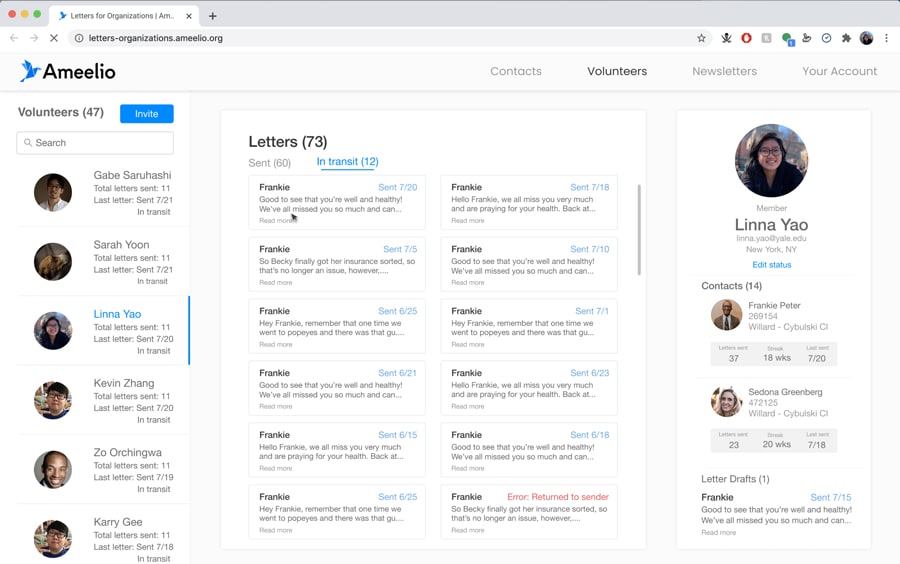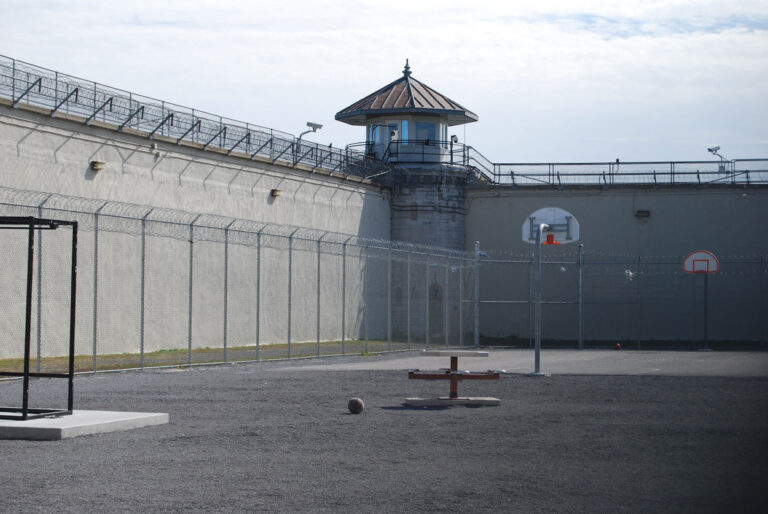Prison reform won’t happen overnight but free communication tech for inmates might
The first time Uzoma Orchingwa wrote a letter to a prison, he was in college, trying to reach an incarcerated childhood friend. The letter never arrived.
Communicating with inmates in America is notoriously difficult—physical addresses are different from mailing addresses, phone calls are exorbitantly expensive, and visiting a state facility requires a 100-mile trek, on average.
Orchingwa has successfully sent many letters since, and while writing his masters dissertation on criminology at Cambridge, he waded deep into research on prison reform—and concluded reforms alone won’t quickly solve the system’s many problems. Now he’s at Yale Law School building Ameelio, a digital platform that has already printed and shipped 22,000 letters to inmates and is preparing to launch a free video call system for jails and prisons. The Kickstarter campaign will help make it happen.
Ameelio is taking on a $1.2 billion communication service industry—mostly a duopoly between Securus and Global Tel Link. In all but 11 states, it’s legal for these companies to charge inmates punishingly high rates for phone calls, pocket margins of 50 per cent or more, and pay jails and prisons millions of dollars in kickbacks. Former FCC Commissioner Mignon Clyburn called the industry “the clearest, most glaring type of market failure I’ve ever seen as a regulator.”

America’s most vulnerable populations are paying for it. Families report spending up to $500 a month to stay connected, and one in three of these families is forced into debt paying for phone calls and visits alone. Family members who are not able to talk or visit regularly are much more likely to report experiencing negative health impacts related to a family member’s incarceration, and isolated inmates face increased challenges readjusting upon their release.
There has been new scrutiny on the issue in recent years, but with uneven progress. A phone call in a city-run Illinois jail, for example, costs 52 times more than a call from a state-run Illinois prison. “We don’t have one justice system,” Orchingwa explains, “we have 51 separate systems. Then underneath that we have counties that have their own stakeholders and incentives.” He hopes that his free communication platform will stop the cycle of overwhelmed administrators letting exploitative businesses into their facilities. “Basically our theory of change is establishing ourselves as a free alternative to the for-profit companies.”
To take on big businesses—and big technical requirements—Orchingwa started with a more straightforward product: a web and mobile app that lets users type letters and upload photos. Ameelio then prints, adds postage, and mails them at no cost. (The bootstrapped non-profit has gathered grants from Robin Hood, Mozilla Builders, and Fast Forward to cover expenses.)
“It made sense to start with letters because there’s very little barrier to entry and the vast majority of people who are incarcerated communicate through letters,” Orchingwa says. “We could bring it online, digitise it, and boost contact.”
As the team rolled out the initial app, interest spread quickly. Close to 50 per cent of Ameelio’s users come directly from referrals of people who are incarcerated—they’ll see letters others are receiving and call home to tell their community about the platform.
Criminal justice organisations soon learned about Ameelio as well. “We were building out this nationwide database because we want to make it easier for our users to find their loved ones and communicate with them. It hadn’t occurred to us that reentry organisations didn’t actually have much visibility either,” Orchingwa says. Even preeminent institutions like PEN America and Harvard’s legal clinics had very limited data and cumbersome mailing processes. The Ameelio team added new product features aimed at these types of users doing outreach and re-entry work.
Now, the fast-growing team is nearing their ultimate goal: a service for free video calls. Inmates will sign on with tablets that are either fixed in a supervised phone bank or available for checkout during visiting hours. The software will allow for scheduling, identity verification, and screenshots or video playback for security compliance. Orchingwa is finalising a pilot program with a mid-sized county jail and looking forward to future iterations that could add education programs and telehealth to the tablets and generate data supporting prison reform.
“We’re going to be able to provide metrics and be able to work with legislators to say, ‘Look, in Connecticut, we find that incarcerated people who have weekly access to their loved one fare much better.’ We should think a little more creatively about recidivism and sentencing,” Orchingwa says. “And we hope to be a technology service that can also do advocacy and accelerate legislative change.”
Ameelio is live on Kickstarter through 31 July, 2020.





